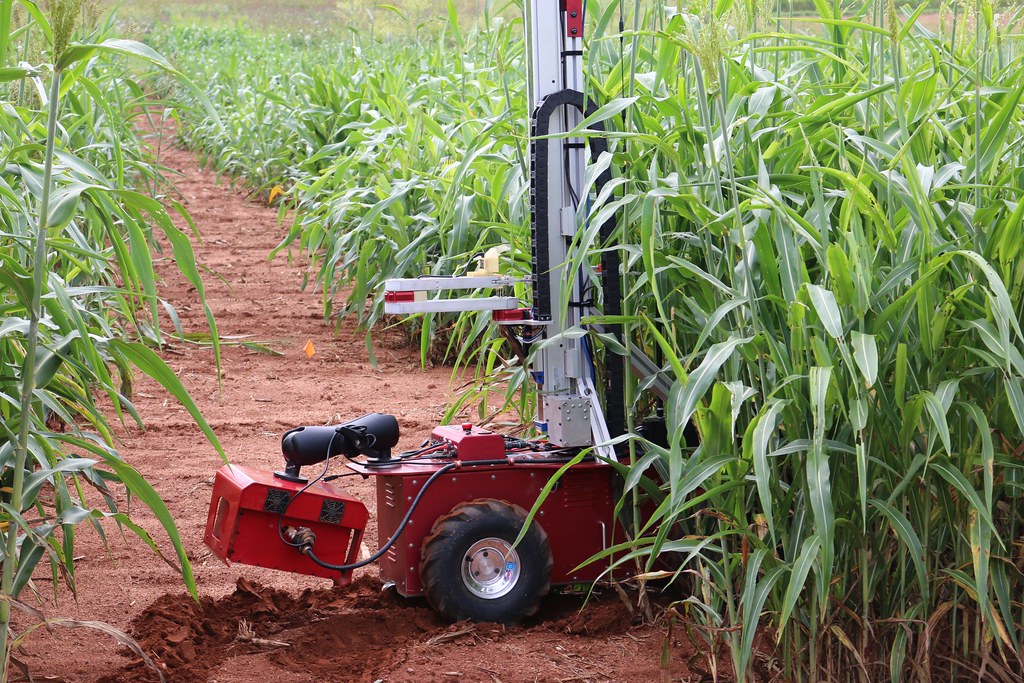A.I. is tackling the world's food crisis
FarmView: CMU Researchers Working to Increase Crop Yield With Fewer Resources
FarmView in :30
Artificial intelligence experts at Carnegie Mellon University are teaming up with agricultural leaders and plant scientists to solve the emerging global food crisis. CMU researchers are developing and deploying a unique comprehensive system of sensing, robotics and A.I. technologies to improve plant breeding and crop management practices in an effort to feed the earth's projected 9.6 billion people, 20 years from now.
Plant yields are not increasing fast enough. What's needed are plants that produce more food on fewer acres with less water. Enter Carnegie Mellon's FarmView, a multidisciplinary research team that is developing automated, data-driven decision tools to increase the yield of sorghum, a drought- and heat-tolerant grain that thrives in famine-prone parts of the world. Researchers are collecting data with drones, robots and stationary sensors on sorghum plants growing at Clemson University, a FarmView partner. Machine learning technologies analyze the data to determine what characteristics produce greater yields. These technologies are also being applied to controlled environmental agricultural systems like vertical farms and greenhouses.
CMU is the conduit from basic research to solving real problems: finding solutions for farmers around the world to grow more food without changing how they farm. Carnegie Mellon researchers are using their expertise to fight world hunger, and doing the work that matters.
Explore more information:
- Digital Trends article: CMU's FarmView, The Future of Food(opens in new window)
- How CMU will feed a growing planet(opens in new window) [pdf]
Photos and video footage courtesy of Clemson University
